News - Advertising
When Advertising Ceases to Be Advertising
by Ibrahim Nehme
November 25, 2008
.jpg) Advertisement
AdvertisementPatriotic advertising- if we shall call it as such- is something the Lebanese are very fond off as their country was a centre stage for frequent political upheavals, destructive wars, economic irregularities and a run of non- stop assassinations hunting the country’s leading figures of freedom and democracy.
What the Lebanese people have been through is by all means a no easy feat. Combine that with a society comprised of varying religious, ethnic, political and economic breeds, all living in a capital overflowing with culture and history, and you would get the perfect ingredients for a creative economy.
Sitting down with Nada Abi Saleh, she explains how she and her creative team at Leo Burnett have managed to keep their creative juices flowing at times when their country was living its worst nightmares.
“We have Lebanon in our heart,” Abi Saleh proudly utters while she glides through her crowded notes. “When I think of the Lebanese agency, the first word that hits my head is resilience.” Resilience is definitely the name of the game in a country that has put up with so many life- changing events. “Every now and then something happened, but in the end we re-bounded, stood up and re-lived again. This resilience is what sets a Lebanese agency, and especially Leo Burnett Beirut, apart from regional counterparts.”
“It’s in our blood that we always surpass our problems and difficulties and put the wrangles behind us,” she continues. “We believe in making things happen. This is the spirit that drives us at Leo Burnett Beirut and this is the spirit that we try to communicate to everyone in the agency, and to our clients and suppliers as well.”
The Lebanese spirit runs in their blood and this is extremely obvious in the campaigns they do, especially the ones that address a decisive national cause. “I can picture Burnetters during the difficult times,” she poses, trying to recall all those brilliant ads they did, those “messages of hope, life and resistance.” The Exotica Flag campaign, the July 06 campaigns they did when the summer war broke between Lebanon and Israel, the Crepaway “Come back as you are” campaign, a clever message addressed to the Lebanese living abroad to come back to their country- a play on Crepaway’s brand line “Come as you are”- and last but not least, the Lebanese Army campaign after they defeated in Nahr El Barid a terrorist organisation that so boldly managed to kidnap and terrorise the northern part of the country.
“These campaigns are milestones that we initiated as an agency for our Lebanon, not because we were asked to from the client, but because we wanted to. We felt it is something we should do; our duty. This is what sets us apart from other countries and maybe other agencies as well.” She asserts that such actions “make you feel bigger and proud; you feel part of this nation and part of the cause. You start feeling that there’s a point when advertising ceases to be advertising and you’re message becomes part of a bigger cause and this cause becomes bigger than your brand. This is when you feel that you have to act, you have to just do it.”
“All those campaigns were pure initiatives. The client didn’t ask us to create something. We just felt the urge to do something simply as Lebanese. We felt so much concerned beyond the brand itself or the strategy of the brand or the creative brief or the marketing problem; it is something bigger than the brand. Such events trigger some- thing very big at the agency.”
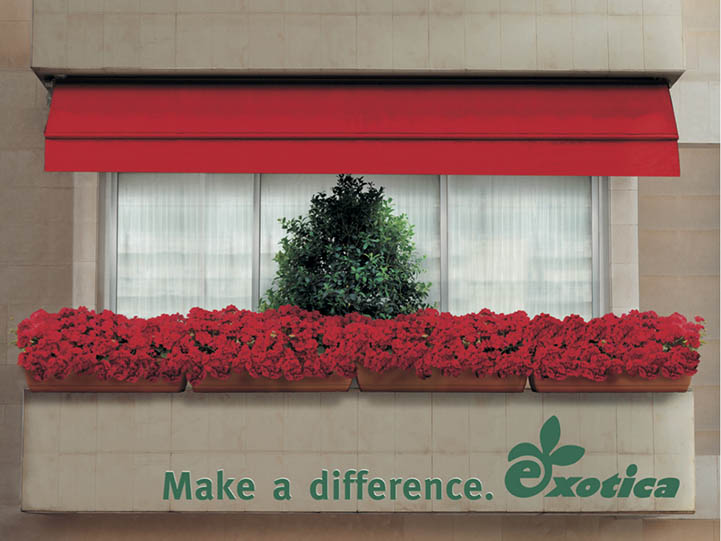 She adds that campaigns were sold to clients with no budget. “And we will continue to do so every time the situation requires us to do so. The idea is to resist the negative eulogy of the situation and the environment and to make a difference. Just as we did with Exotica Flag campaign following the ‘Spring of Lebanon’ (referring to the Cedars Revolution during which 1.3 million Lebanese took the streets call- ing for Syria to get out of the country).”
She adds that campaigns were sold to clients with no budget. “And we will continue to do so every time the situation requires us to do so. The idea is to resist the negative eulogy of the situation and the environment and to make a difference. Just as we did with Exotica Flag campaign following the ‘Spring of Lebanon’ (referring to the Cedars Revolution during which 1.3 million Lebanese took the streets call- ing for Syria to get out of the country).”
In addition to the Exotica, two other brilliant initiatives were undertaken during the Israeli attack on Lebanon: Bank Audi’s Hope and Johnny Walker’s Bridge campaigns. The two are very important initiatives that show how Leo Burnett reacted to the sudden war and have initiated a huge worldwide debate on advertising at times of war.
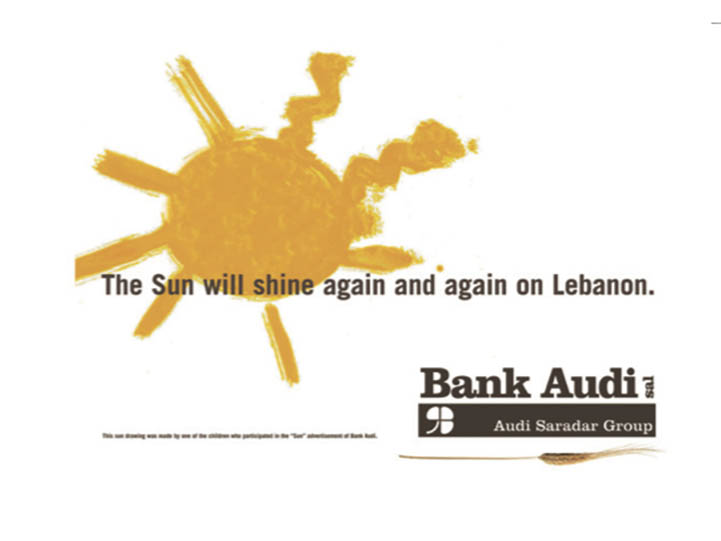 “We have transformed the media landscape into an environment of resistance. After four days of the Israeli attack, when the Lebanese were still under shock and didn’t know what to do, we launched the hope message on TV and Outdoor.” “The sun will shine again and again on Lebanon,” read the simple, yet extremely powerful, Bank Audi message.
“We have transformed the media landscape into an environment of resistance. After four days of the Israeli attack, when the Lebanese were still under shock and didn’t know what to do, we launched the hope message on TV and Outdoor.” “The sun will shine again and again on Lebanon,” read the simple, yet extremely powerful, Bank Audi message.
Sammy Ketz, a reporter at AFP, contacted Leo Burnett Beirut and wrote an article about the Hope initiative, entitled “Amid bombardment, ad campaign seeks Lebanon sunshine.” AFP, being the media powerhouse that it is, sent the article to almost every- where in the world as a message of hope from a Lebanese bank amidst a terrible war. It triggered a huge reaction and attracted unprecedented international attention and publicity. The campaign was featured in Adweek, Brand Week and Media Week England. Journalists from London, Portugal, Turkey and India contacted the Burnetts in Beirut to discuss the initiative and talk about advertising at times of war.
Leo Burnett London also helped in the PR exportation and more than 40 local and international websites, from MSN to Yahoo, published the AFP article.
Then, the ‘me too’ effect started rolling with other financial institutions rallying similar messages of hope and resistance, provoking serious debates as to whether those campaigns were acts of nationalism or opportunism.
Abi Saleh confirms that the message was one of hope in times of war and the resilience of a bank, a people and an agency that will always believe in a brighter tomorrow.
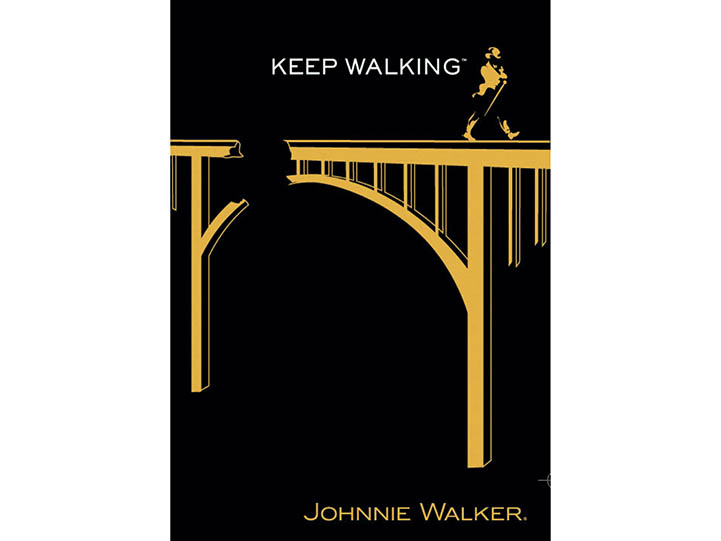 The second campaign was for Johnny Walker. With bridges being the main target for complete destruction, and the airport and marine transport cut down to its roots, the Lebanese became imprisoned in their very own country. The agency launched the Bridge campaign that featured the infamous Johnny crossing a broken bridge with the simple brand line emphasis- ing, “Keep Walking.” The worldwide exposure was nothing less than what the ‘Hope’ campaign received.
The second campaign was for Johnny Walker. With bridges being the main target for complete destruction, and the airport and marine transport cut down to its roots, the Lebanese became imprisoned in their very own country. The agency launched the Bridge campaign that featured the infamous Johnny crossing a broken bridge with the simple brand line emphasis- ing, “Keep Walking.” The worldwide exposure was nothing less than what the ‘Hope’ campaign received.
It is noteworthy to mention that with momentum rising, the coverage came to a sudden halt when a global decision was taken by Diageo International (the company that owns Johnny Walker) to suspend all official talk on the campaign. Diageo thought the debate concerning the campaign had become too sensitive and that it had reached political significance far greater than what was originally intended.
When I asked Abi Saleh on how this ‘Lebanese way’ at her agency creates an edge, not only at times of wars and recessions, she said, “It makes you participate in other causes. It makes you more receptive to other clients and causes that are Lebanese related, not particularly related to war. It’s not an FMCG product, but a pure Lebanese cause; it’s about us, and we feel more enthusiastic to take it on board and make it bigger as we did with the Amam campaign against sectarianism, the Khidi Kasra campaign for Lebanese women empowerment and the latest Taanayel ad, which is currently a super hit. It makes us vibrate and resonate with Lebanon.”
And concerning if such Lebanese relevant messages with strong cultural nuances are what made them lose at the latest Dubai Lynx Awards- considering that all jury members were westerners and maybe couldn’t relate to the ads- Abi Saleh was swift to remind me that the Outdoor Lynx Grand Prix was won by them, in a clear message that when it comes to advertising that excels internationally, her agency is also at par. “An agency should have multiple sensitivities and you have to make it on all fronts. Whenever you’re facing a jury you have to play it on all fronts. For international brands you have to be culturally relevant on this front and the Kolestone ad (their Grand Prix winner) is the best example. We understand the Lebanese culture, but we are at the end of the day an inter- national network.”
Abi Saleh wanted to take a break from media analysis and advertising madness, a sincere moment for our Lebanon. “The show must go on,” she concludes. “This is our spirit, this is the way we must think in order to keep things moving. We can’t give up. This is the Leo Burnett way, this is the Lebanese way.


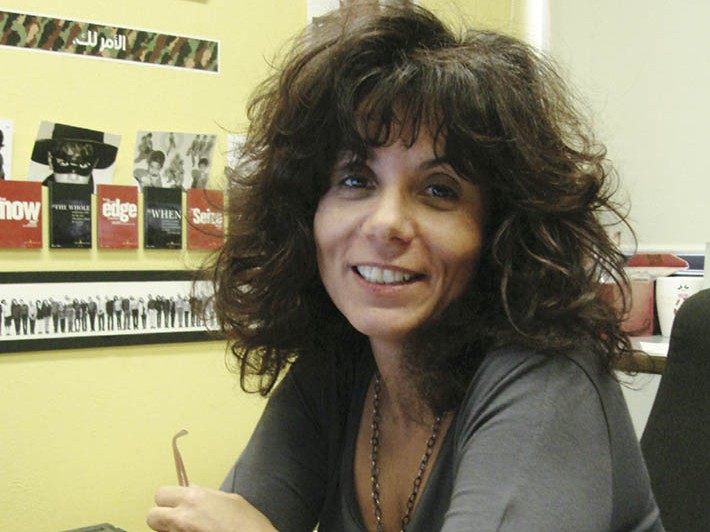
.jpg)
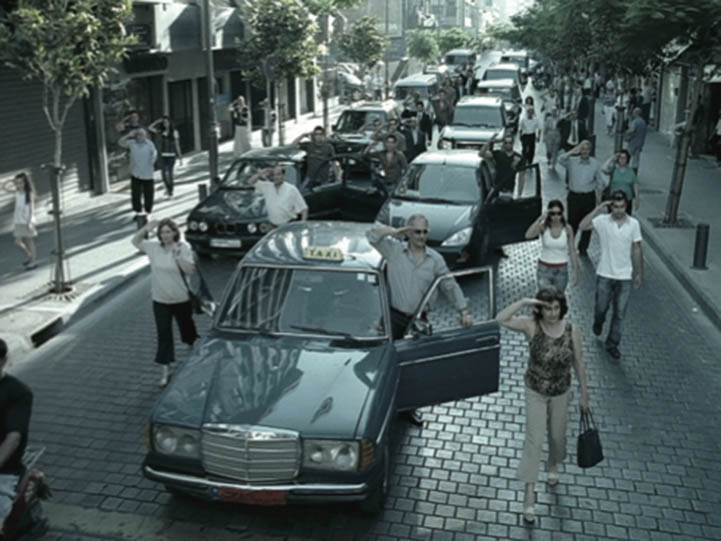
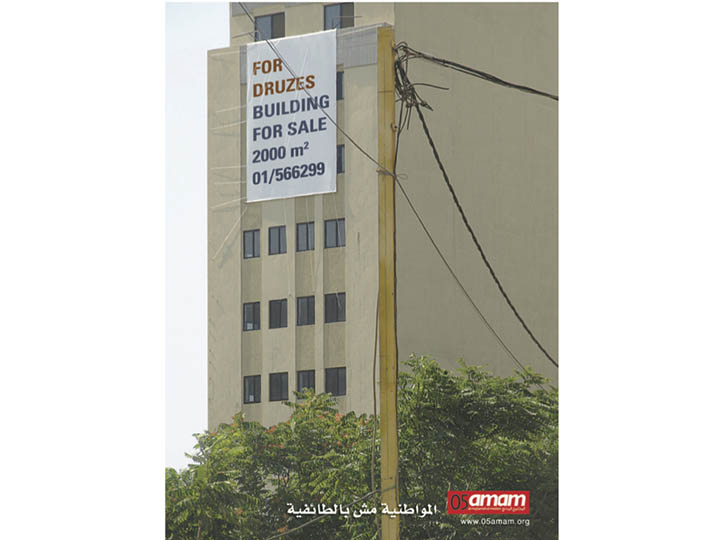
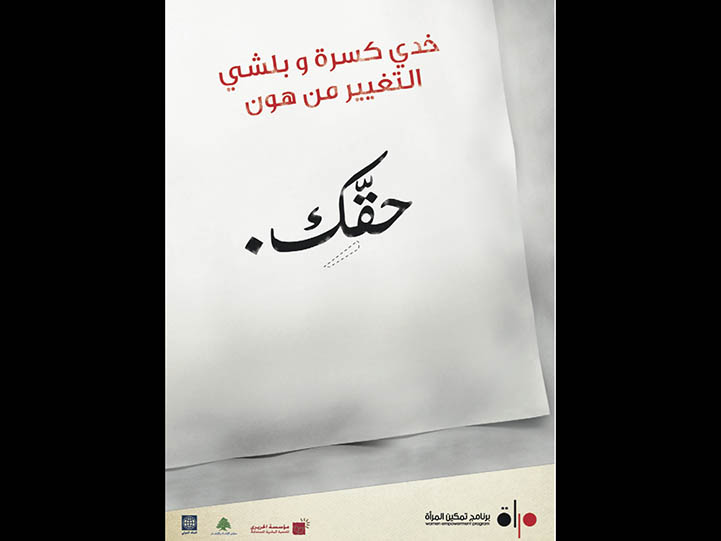
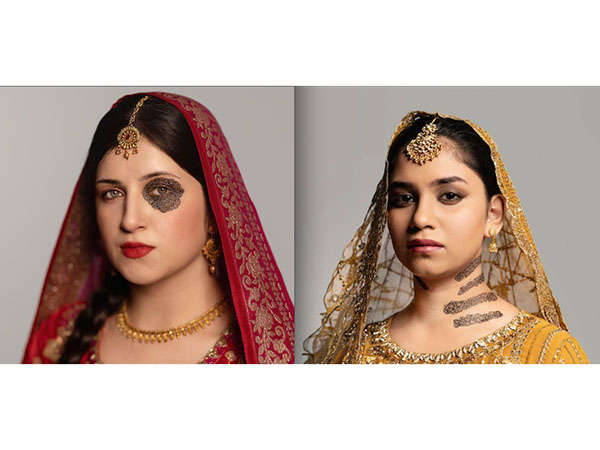
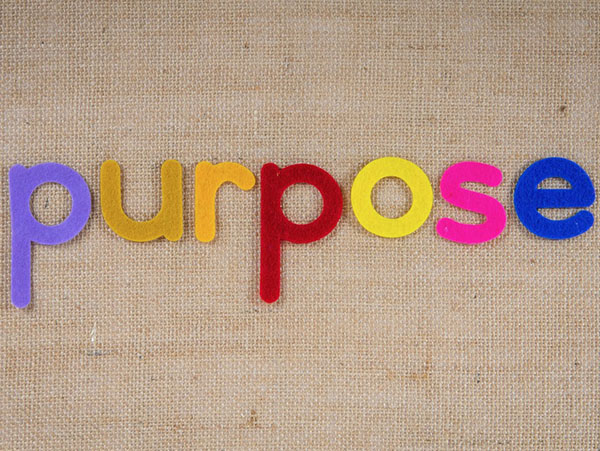
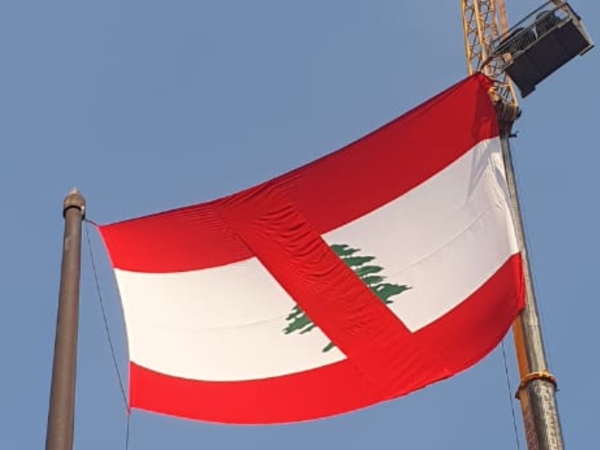
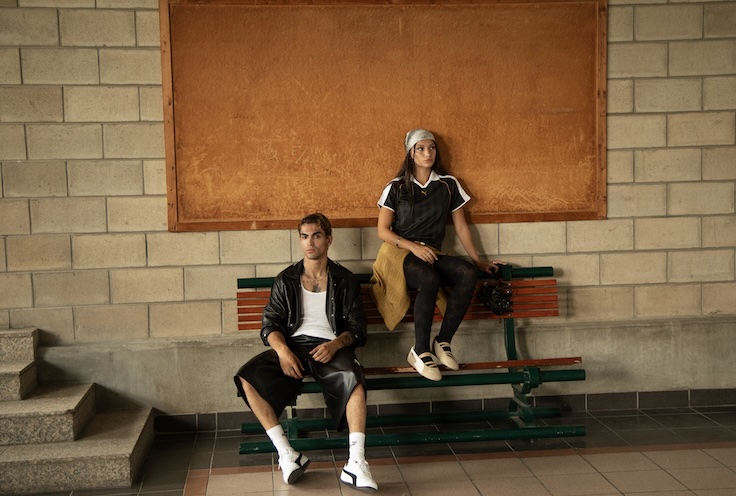
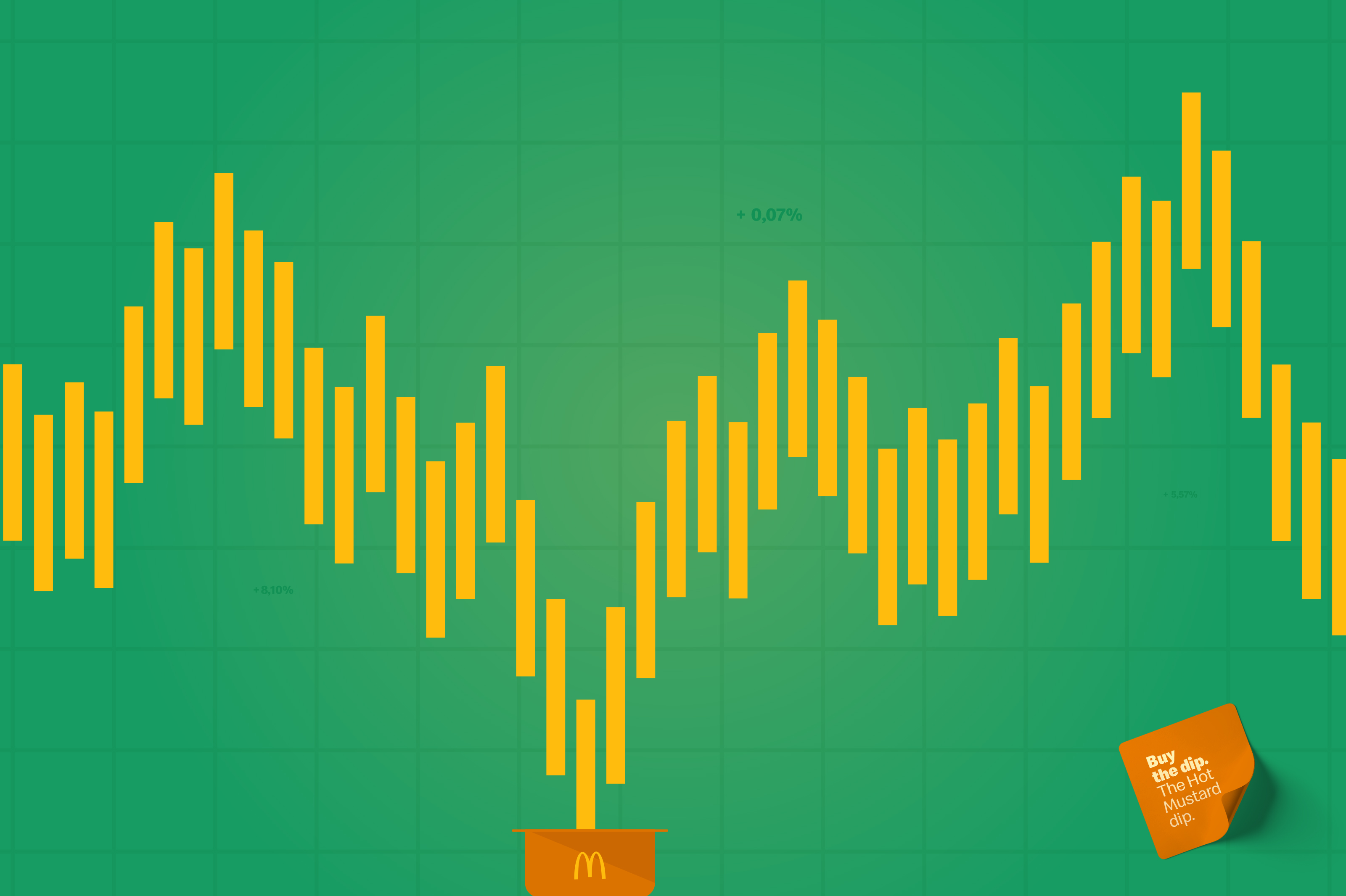
.jpg)




